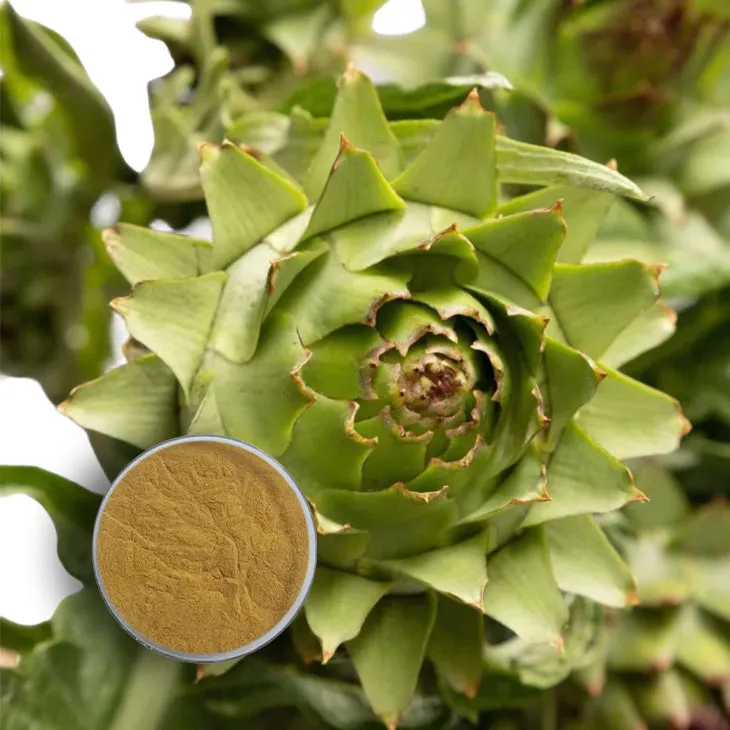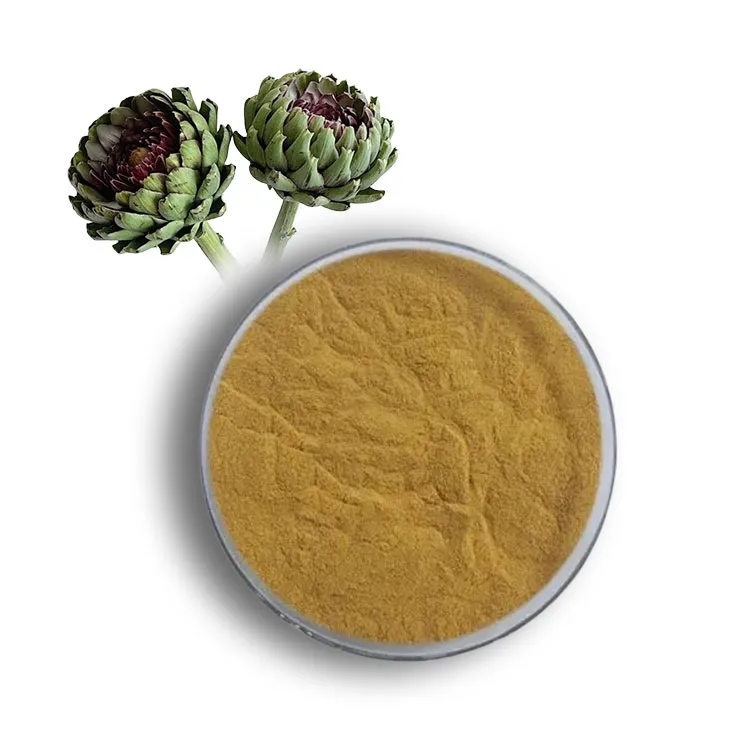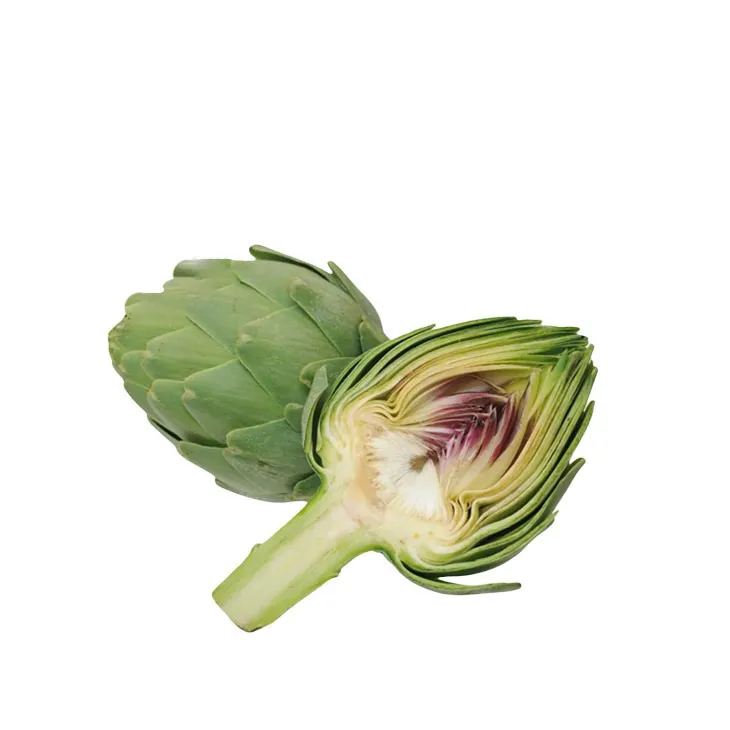- 0086-571-85302990
- sales@greenskybio.com
5 Great Reasons for Using Artichoke Leaf Extract in the Food Industry.
2024-12-22

1. Natural Source of Beneficial Compounds
In the modern food industry, the demand for natural ingredients has been on a steady rise. Consumers are increasingly becoming more conscious about what they put into their bodies, and they are actively seeking products that are made from natural sources. Artichoke Leaf Extract is a prime example of such a natural ingredient that is rich in a variety of beneficial compounds.
Artichoke leaves contain flavonoids, phenolic acids, and cynarin, among other substances. These compounds are not only natural but also possess several health - promoting properties. For example, flavonoids are known for their antioxidant, anti - inflammatory, and anti - microbial activities. They can help in protecting the body against various diseases and maintaining overall well - being. When used in the food industry, Artichoke Leaf Extract can provide these same benefits to consumers in a more accessible and enjoyable form, such as in fortified foods or beverages.
Moreover, as the market for natural - product lovers continues to expand, food manufacturers can use Artichoke Leaf Extract to attract these consumers. By highlighting the natural origin of this ingredient on product labels, companies can enhance the appeal of their products. This can lead to increased brand loyalty and market share, as consumers are more likely to choose products that align with their values of consuming natural and healthy foods.

2. Acts as a Preservative - like Agent
One of the significant challenges in the food industry is food preservation. Traditional artificial preservatives have been used for decades to extend the shelf life of food products. However, in recent years, there has been a growing concern among consumers about the potential health risks associated with these artificial preservatives. This has led to a search for more natural alternatives, and artichoke leaf extract offers an exciting solution.
Artichoke leaf extract has strong antioxidant capabilities. Antioxidants play a crucial role in preventing food spoilage by inhibiting the oxidation process. Oxidation can lead to rancidity in fats, browning of fruits and vegetables, and the degradation of nutrients in food. By adding artichoke leaf extract to food products, manufacturers can slow down these oxidative processes, thereby extending the shelf life of the products.
This natural preservative - like property of artichoke leaf extract can also result in cost savings for food companies. Since they can rely less on artificial preservatives, which may be more expensive in some cases, they can reduce their production costs. Additionally, using a natural ingredient for preservation can enhance the product's image as a more natural and healthy option, further appealing to consumers.

3. Positive Impact on the Body's Internal Systems
Artichoke leaf extract has a well - established reputation for its positive impact on the body's internal systems, particularly digestion and liver function. When incorporated into food products, these health - promoting properties can be transferred, adding significant value to the products.
In terms of digestion, artichoke leaf extract can stimulate the production of bile, which is essential for the breakdown and absorption of fats in the small intestine. It can also improve the overall function of the digestive system by increasing the motility of the gut. This means that food products containing artichoke leaf extract can potentially aid in better digestion for consumers. For example, in the case of high - fat foods, the addition of artichoke leaf extract can help the body process the fats more efficiently, reducing the likelihood of digestive discomfort.
Regarding liver function, artichoke leaf extract has been shown to support liver health. The liver is a vital organ responsible for detoxifying the body and metabolizing nutrients. Compounds in artichoke leaf extract can help protect the liver from damage caused by toxins and promote the regeneration of liver cells. Incorporating this extract into food products can offer a form of liver - support for consumers, especially those who may be exposed to environmental toxins or have a lifestyle that puts stress on their liver.

4. Imparts a Distinct Flavor
In a highly competitive food market, product differentiation is key. Artichoke leaf extract can provide food products with a distinct flavor that can set them apart from competitors.
The flavor of artichoke leaf extract can be described as a unique combination of earthy, slightly bitter, and nutty notes. This flavor profile can add depth and complexity to a wide range of food products. For example, in salad dressings, the addition of artichoke leaf extract can enhance the overall flavor, providing a more interesting and sophisticated taste compared to traditional dressings.
In the case of baked goods, such as bread or pastries, artichoke leaf extract can introduce a new and unexpected flavor dimension. It can complement the existing flavors of the ingredients, creating a more memorable taste experience for consumers. This distinct flavor can also be used in the development of new and innovative food products, attracting consumers who are always on the lookout for novel taste sensations.
5. Enhances the Nutritional Profile
With the increasing prevalence of health - conscious consumers, there is a greater demand for food products that are not only delicious but also nutritious. Artichoke leaf extract has the potential to enhance the nutritional profile of food, making it an ideal ingredient for meeting these consumer demands.
As mentioned earlier, artichoke leaf extract contains a variety of beneficial compounds such as flavonoids and phenolic acids. These compounds contribute to the overall nutritional value of the food product. For instance, in a fortified juice or a snack bar, the addition of artichoke leaf extract can increase the antioxidant content, providing consumers with an extra dose of health - promoting substances.
Additionally, artichoke leaf extract can also be a source of dietary fiber. Fiber is an important component of a healthy diet, as it aids in digestion, helps maintain a healthy weight, and can reduce the risk of certain diseases. By incorporating artichoke leaf extract into food products, manufacturers can increase the fiber content, making the products more appealing to health - conscious consumers.
FAQ:
Question 1: What are the main beneficial compounds in artichoke leaf extract?
Artichoke leaf extract contains compounds such as cynarin and chlorogenic acid. Cynarin is known for its potential health - promoting properties, and chlorogenic acid is a powerful antioxidant.
Question 2: How effective is artichoke leaf extract as a preservative - like agent compared to artificial preservatives?
Artichoke leaf extract, with its antioxidant capabilities, can inhibit the oxidation process in food. While it may not be as potent as some artificial preservatives in a one - to - one comparison, it offers a natural alternative. In certain food products, especially those where a more natural profile is desired, it can be very effective in extending shelf - life to a reasonable extent.
Question 3: Can artichoke leaf extract be used in all types of food products for its positive impact on digestion?
Not all food products are suitable for the addition of artichoke leaf extract. For example, in some highly acidic or alkaline foods, the stability and functionality of the extract may be affected. Also, some foods with very delicate flavors may be overpowered by the distinct flavor of the artichoke leaf extract. However, in many common food products like salads, soups, and some baked goods, it can be used to potentially enhance digestion - related benefits.
Question 4: How does artichoke leaf extract enhance the nutritional profile of food?
Artichoke leaf extract adds beneficial compounds like antioxidants, which are valuable for overall health. These antioxidants can help combat oxidative stress in the body. Also, its positive impact on digestion can indirectly contribute to better nutrient absorption from other food components, thus enhancing the overall nutritional value of the food product.
Question 5: What kind of distinct flavor does artichoke leaf extract impart to food?
The flavor imparted by artichoke leaf extract can be described as slightly bitter, earthy, and vegetal. It can add a unique depth to the flavor profile of food, making it stand out. In some cases, it can be blended well with other flavors like garlic, lemon, or olive oil to create a more complex and appealing taste.
Question 6: Are there any potential side effects of using artichoke leaf extract in food?
In general, when used in normal amounts in food, artichoke leaf extract is considered safe. However, some people may be allergic to artichoke or related plants. Also, if consumed in extremely large quantities (which is not typical in normal food use), it may cause digestive discomfort such as bloating or diarrhea.
Related literature
- The Potential of Artichoke (Cynara scolymus L.) in the Food and Pharmaceutical Industries"
- "Artichoke Leaf Extract: Composition, Properties and Applications in Functional Foods"
- "Beneficial Effects of Artichoke in Nutrition and Health: A Review"
- ▶ Hesperidin
- ▶ Citrus Bioflavonoids
- ▶ Plant Extract
- ▶ lycopene
- ▶ Diosmin
- ▶ Grape seed extract
- ▶ Sea buckthorn Juice Powder
- ▶ Fruit Juice Powder
- ▶ Hops Extract
- ▶ Artichoke Extract
- ▶ Mushroom extract
- ▶ Astaxanthin
- ▶ Green Tea Extract
- ▶ Curcumin
- ▶ Horse Chestnut Extract
- ▶ Other Product
- ▶ Boswellia Serrata Extract
- ▶ Resveratrol
- ▶ Marigold Extract
- ▶ Grape Leaf Extract
- ▶ New Product
- ▶ Aminolevulinic acid
- ▶ Cranberry Extract
- ▶ Red Yeast Rice
- ▶ Red Wine Extract
-
Kidney Bean Extract
2024-12-22
-
Curcumin
2024-12-22
-
Almond Extract Powder
2024-12-22
-
Saffron Extract Powder
2024-12-22
-
Giant Knotweed Extract
2024-12-22
-
Lotus leaf extract
2024-12-22
-
Honeysuckle Pollen
2024-12-22
-
Aminolevulinic acid
2024-12-22
-
Genistein
2024-12-22
-
Hericium erinaceus extract powder
2024-12-22





















